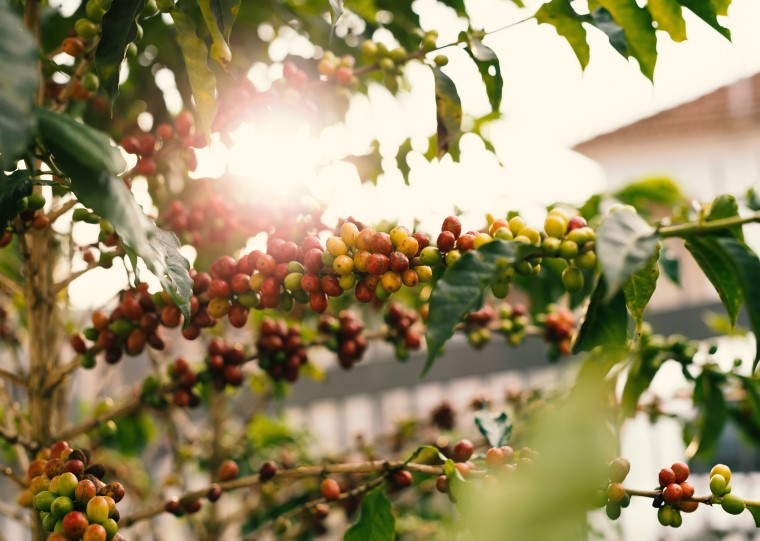QUALITY COFFEE TO THE WORLD 🌎

The Pearl of Africa, Uganda, boasts a vibrant coffee industry that employs over 5 million Ugandans engaged in coffee value chain activities. In the Central Lake Victoria basin, Robusta coffee, which contributes 80% of the country’s total production, thrives at altitudes up to 1,250 meters above sea level. The remaining 20% is Arabica coffee, which grows at even higher altitudes up to 2,300 meters above sea level on the hanging slopes of Mt. Elgon in the East, Mt. Rwenzori in the Southwest, and Mt. Muhabura in the West. Each day, over 1.8 million coffee farmers diligently tend to their farms, practicing Good Agricultural Practices (GAP) despite the challenges posed by climate change.
Annually, these farmers produce over 6.13 million 60kg bags of coffee worth USD 965 million. Quality-wise, Uganda’s Robusta coffee has a caramel, spicy, and herby fragrance, a caramel aroma, and flavors of nutty, tropical fruit, and spice, with a bitter or salty taste and a spicy, dried fruit aftertaste. In contrast, Arabica coffee features a dried fruit, chocolatey, spicy, herby, and citrus fragrance, a dried fruit and citrus aroma, and a dried fruit flavor, with a good body and acidity taste, and a citrus aftertaste.
At Superlative Coffee Services Ltd., we collaborate with exporters who ethically source coffee and are deeply committed to supporting farmers in sustainable Climate smart coffee production while conserving the environment and natural resources. In addition, these exporters work closely with farmers and other stakeholders in the coffee industry to ensure full compliance with the new European Union Deforestation Regulation (EUDR) and the Corporate Sustainability Due Diligence Directive (CS3D). Achieving compliance with these stringent regulations not only helps protect the environment but also provides Ugandan coffee exporters with a competitive edge in the global market. This compliance reassures buyers of the ethical and sustainable practices employed throughout the supply chain, ultimately enhancing the market value of Ugandan coffee. By adhering to these standards, exporters can support farmers in improving their livelihoods, ensuring a stable and prosperous future for the entire coffee industry in Uganda.
